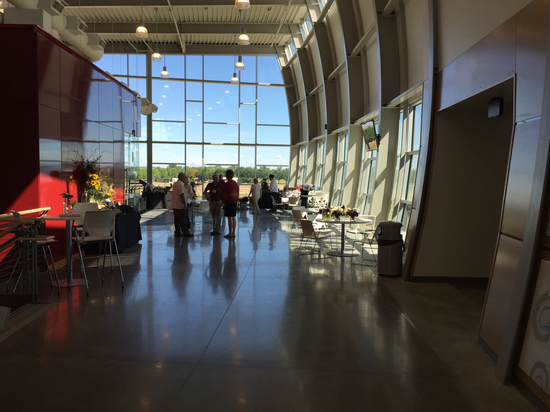
WOODINVILLE, Wash. — Chateau Ste. Michelle continues to grow its “Raise a Glass, Fund a Scholarship” program as more than 300 restaurants in Washington state will support the annual effort for assist viticulture and enology schools throughout the Pacific Northwest wine industry.
Through the first seven years, the collaboration with restaurants has allowed Chateau Ste. Michelle to raise more than $300,000 for Washington State University and other winemaking programs in the region. Last year, about 200 restaurants generated about $50,000 for the program.
“Our program is expanding to meet the needs of Washington’s rapidly growing wine industry, most recently with the landmark opening of the Ste. Michelle Wine Estates WSU Wine Science Center,” says Thomas Henick-Kling, director of the WSU viticulture and enology program. “Some students would not have the opportunity to study here without tuition support such as Raise a Glass, Fund a Scholarship. These funds go toward the next generation of skilled vineyard and winery employees who will further improve Washington’s distinct, premium wine through practical research.”
Ste. Michelle launches scholarship drive in 2008
Chateau Ste. Michelle launched the Raise A Glass, Fund a Scholarship program in 2008, and the money helps fund scholarships, research, faculty and equipment. This year’s drive ends at the end of December.
“We are very proud that our local restaurant community has helped us,” said Ste. Michelle Wine Estates President Ted Baseler. “These local viticulture and enology programs are critical for the Washington wine industry to continue to produce world-class wines for decades to come.”
Click here to view the growing list of participating restaurants.
The goal of the promotion is to support the Pacific Northwest wine industry by ensuring world-class training is available within colleges and universities in the Pacific Northwest to sustain the future of the industry.
The Washington wine industry is the nation’s second-largest wine producer with more than 850 wineries, and 350 grape growers while employing more than 27,000 full-time workers.

Leave a Reply